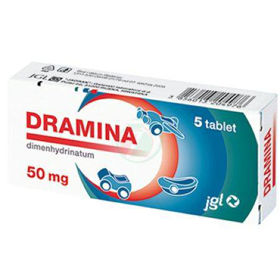Nausea is stomach discomfort that often precedes vomiting. Vomiting is the voluntary or involuntary emptying of stomach contents through the mouth. The causes can be numerous, from travel sickness, excessive pain, stress resulting from fear, food poisoning, and obstructions of the digestive tract...
WEAKNESS: What is weakness? | Causes of Nausea | Symptoms | Medical assistance | CURE for nausea | TRAVEL SICKNESS CURE | Nausea Prevention | Questions and Answers | Sources/references
Nausea is the feeling you get when you think you're going to throw up. It's usually not a sign of anything serious, and there are steps you can take to help you feel better.
Many, if not all, people are numb to nausea. You've probably felt this way at least once in your life, maybe especially after eating something that didn't feel right to you, or maybe it happened while reading a book while driving.
Video content: what is the downside?

Nausea is not a disease but a symptom or something you feel. It often occurs before vomiting (when you vomit the contents of the stomach through your mouth, it usually goes away). You may also experience dry retching (an apparent vomiting feeling, but nothing leaving your stomach).
Snausea and dizziness, which affect some people while traveling in a vehicle, are unpleasant — mainly if they cause vomiting, but they are not a sign of a severe illness. The symptoms of motion sickness usually stop when the body gets used to the way of travel or soon after the trip ends.
About 80% of people have experienced motion sickness. Fortunately, there are plenty of ways to prevent it.
CAUSES
Moving sickness occurs because the brain receives conflicting information from the senses: the eyes do not perceive movement in the same way as the balance organ in the inner ear. The central nervous system responds to this stressful situation by stimulating the nausea centers in the brain.
The causes of nausea are different...
If you suddenly feel sick after eating, this could be due to gastritis (inflammation of the stomach lining), an ulcer, or many other problems. On the other hand, if nausea occurs 1 to 8 hours after you have eaten, it may be due to food poisoning.
Video content: 5 reasons why nausea occurs.

Most pregnant women experience nausea during the first trimester (first 12 weeks) of pregnancy and sometimes during pregnancy. Feeling unwell is also common if you are in severe pain, suffer from head injuries, or are experiencing significant emotional stress.
Travel sickness occurs because the brain receives conflicting information from the senses: the eyes do not perceive movement in the same way as the balance organ in the inner ear. The central nervous system responds to this stressful situation by stimulating the nausea centers in the brain.
Below are some other possible causes of nausea:
- Travel or seasickness
- Nausea due to certain medicines
- Gall bladder disease
- Infections (e.g., stomach flu)
- Overeating
- Reaction to certain smells or tastes
- Heart attack
- Concussion or brain injury
- Brain tumor

- Stomach ulcers
- Some forms of cancer
- Bulimia or other psychological diseases
- Anxiety
- Gastroparesis or slow gastric emptying
- Ingestion of toxins or consumption of excessive amounts of alcohol
- Intestinal obstruction
- Inflammation of the appendix
Nausea symptoms
- include feeling as if you will vomit.
- Lack of appetite.
- Profuse perspiration.
- repetitive rhythmic contractions of the respiratory and abdominal muscles that happen without your control (vomiting)
- pain in the stomach.
- Unpleasant feeling in the chest, upper abdomen, or back of the throat.
- vomiting
Symptoms of motion sickness: Sweating, dizziness, paleness, and nausea — sometimes vomiting — while traveling by car, bus, train, ship, or plane.
Medical assistance
See your doctor if you cannot eat or drink for more than 12 hours due to nausea. It's also imperative to see your doctor if nausea doesn't go away within 24 hours of trying over-the-counter medications. Always seek medical attention if you are concerned that you may have a medical emergency.

Seek immediate medical attention if symptoms of a heart attack accompany your nausea. Symptoms of a heart attack include severe chest pain, headache, jaw pain, sweating, or pain in the left arm.
You should also seek emergency help if you experience nausea combined with a severe headache, neck stiffness, breathing problems, or confusion. Seek medical attention if you suspect you have ingested a toxic substance or are dehydrated.
Nausea treatment
Treatment of nausea, of course, depends on the cause
Sitting in the front seat of a car or looking out the window into the distance can help ease the feeling of motion sickness. Motion sickness can also be helped with medications such as dimenhydrinate (Dramamine), an antihistamine, or you can help by applying a scopolamine patch to relieve travel or seasickness.
Medication to address the underlying cause of nausea can also help with nausea. Examples include drugs to reduce the production or release of stomach acid or pain relievers for intense headaches.
Staying hydrated is also crucial and helps reduce the chance of dehydration after nausea subsides. This includes taking small, frequent sips of fluids, such as water or a drink containing electrolytes.
When you start reintroducing food, it's helpful to stick to the BRAT diet (bananas, rice, applesauce, and toast) until your stomach settles down.
TREATMENT OF TRAVEL SICKNESS
Travel sickness is best cured by stopping the movement that is causing you problems, which is not always possible. If you are prone to motion sickness, you should plan how to prevent it or cope before each trip.
- CONVENTIONAL MEDICINE
The doctor may recommend antiemetics, e.g., dimenhydrate, over the counter. They relieve nausea by reducing the sensitivity of the nerves in the inner ear that detect movement. He can prescribe the same drug with more excellent activity if you need a more potent drug. For anti-nausea medications to be effective, you must take them well before your trip (even a day before).
Video content: the best ways to get rid of nausea.

If you are going on a long trip, your doctor may prescribe scopolamine as a patch. Scopolamine reduces the muscle spasms that trigger vomiting. Stick the patch behind your ear; scopolamine is absorbed into the bloodstream for three days. If you are highly prone to motion sickness, your doctor may advise you to take the anti-nausea medication in addition to the patch.
- ALTERNATIVE MODES
Many alternative medicines for the prevention or treatment of travel sickness consist of the same active ingredients. The favorite medicine of natural healers is ginger (Zingiber officinale). It does not cause the side effects that anti-nausea drugs have. You can drink it as tea, eat it candied, or take it in the form of capsules (two capsules every four hours one day before the trip and, if necessary, during the trip); you should take it on an empty stomach.
- ACUPRESSURE
Many scientific studies have proven that the Osrčnik 6 acupressure point effectively reduces nausea. You can get an acupressure bracelet to place over this point while traveling. If you fit it as directed, the bump in the bracelet puts pressure on a point that reduces nausea. Both alternative and conventional doctors recommend the bracelet, and you can buy it at a pharmacy.
Video content: prevent nausea with acupressure.

Acupressure on the lower edge of the ribs (Spleen point 16) effectively reduces nausea.
When nausea leads to vomiting
The causes of vomiting also vary according to age. A viral infection usually causes vomiting in children, food poisoning, milk allergy, motion sickness, overeating, coughing or blocked bowels, and diseases in which the child develops a high fever.
The duration of nausea or vomiting may indicate the cause itself. For example, nausea or vomiting shortly after a meal can result from food poisoning, gastritis (inflammation of the stomach lining), or stomach ulcers.
One to eight hours after a meal, nausea or vomiting can indicate food poisoning. However, some food-borne bacteria, such as salmonella, can cause symptoms for a long time after eating the food.
Tips for preventing nausea and vomiting
Avoiding triggers for nausea can help prevent nausea.
This includes:
- avoiding flashing lights that can trigger migraine attacks
- avoidance from excessive heat, heat, and humidity
- previous use of medication for seasickness or travel sickness
- avoidance of strong or triggering smells
Changes in eating habits, such as eating small, frequent meals, can also help reduce feelings of nausea. Avoiding vigorous physical activity after a meal also helps reduce nausea. Avoiding spicy, fatty, and difficult-to-digest foods can also help with this problem.
Video content: the best home remedies against nausea.

Regardless of the reason, nausea is highly unpleasant, so most people will try to prevent vomiting at first. While it's often best to let the digestive tract empty (e.g., due to food poisoning), there are steps you can take to prevent this from happening.
These include:
- sitting, rest, and restriction of physical activity
- drinking cold and sweet drinks
- drinking ginger tea
- chewing/licking ice
- deep and slow breathing
- fresh air
If nausea, vomiting, and diarrhea last more than 24 hours, an oral rehydration solution should be used simultaneously to prevent and treat dehydration.
PREVENTION OF TRAVEL ILLNESS
You can reduce your susceptibility to travel sickness with many measures.
In addition to the suggestions above, the following may help:
- Breathe fresh air. Open the window in the car, go to the deck on the ship, and adjust the ventilation in the plane.
- Keep your head as still as possible. Please close your eyes or focus them on the horizon or a stationary object. Sit where movement is least noticeable — in the front seat of a car, in the middle of a ship, or in the cabin at the front, above an airplane's wings. Do not sit facing backward on a bus, train, or plane. Do not read while traveling.
Video content: travel sickness - how to cure it?

- Eat light meals and low-fat, starchy foods. Avoid food that has a strong smell or taste.
- Do not drink alcohol or smoke, as both increase nausea.
- If you feel nauseous, try eating olives or sucking on a lemon — the mouth becomes dry, and nausea lessens. Crackers soak up excess saliva and stomach acid.
Excessive vomiting can cause dehydration.
Vomiting is often not harmful but can indicate a more severe condition. Concussions, meningitis (infection of the lining of the brain), intestinal obstruction, appendicitis, and brain tumors are some examples of dangerous diseases that can cause nausea or vomiting.
Dehydration is also a severe problem that develops simultaneously with vomiting, especially if it continues for a long time. Due to the ability to recognize the signs of dehydration, adults are less likely to become dehydrated (such as increased thirst and dry lips or oral cavity). Because children often don'tunable to verbalize symptoms of dehydration, they are more likely to be dehydrated, especially if they have diarrhea.
External manifestations of dehydration, such as dry lips and mouth, sunken eyes, and rapid breathing or heart rate, should be recognized by adults caring for a sick child. In addition, be aware of a sunken fontanelle (the soft spot on the baby's head) and possible decreased urine output in infants.
Hyperemesis gravidarum is a disorder in which a woman, in particular, can develop an imbalance of fluid and minerals, which could endanger her life or the life of the unborn child and can also be the result of persistent vomiting during pregnancy.
Conclusion
Nausea is discomfort in the stomach and the feeling of wanting to vomit. Nausea can be a precursor to vomiting of stomach contents. Nausea has many causes and can often be prevented and treated.
Questions and Answers
What can nausea be a symptom of?
Nausea and vomiting are not diseases but symptoms of various conditions such as infection ("stomach flu"), food poisoning, motion sickness, overeating, bowel obstruction, concussion or brain injury, appendicitis, and migraines [1].
Why am I sick but not vomiting?
When your blood sugar drops too low, you may feel nauseous and dizzy. Avoid foods that are sweet, fatty, or fried, as these types of foods can make nausea worse. Instead, try more natural ingredients, such as ginger or mint tea, or foods such as bread or crackers to ease nausea[2].
When should nausea worry me?
Make an appointment with your doctor if:
- vomiting lasts more than two days in adults,
- more than 24 hours in children under two years of age, or
- more than 12 hours in infants.
It can also be problematic if you have bouts of nausea and vomiting that last more than a month or if you suffer from unexplained weight loss combined with nausea and vomiting[3].
What causes daily nausea?
Some common causes of persistent nausea include pregnancy, gastroparesis, and intestinal obstructions. Anti-nausea medications and home remedies can help control nausea. Still, a person with persistent nausea should seek medical attention as it is a sign of an illness that may need to be treated and requires medical attention.
How quickly do you get rid of nausea?
Here are some ways that can help you:
- Sit down and rest...
- open a window or sit in front of a fan for a short time...
- apply a cold pack...
- meditate and breathe deeply...
- redirect your attention...
- stay hydrated...
- drink chamomile tea...
Sources and references
Source: Family Health Guide. Conventional and alternative treatment, Dr. Jajo Lajovic, Publishing House Mladinska knjiga
1. Nausea & amp; Vomiting - https://my.clevelandclinic.org
2. Why Do I Feel Like Throwing Up, but I Don't? - https://blog.ochsner.org
3. Nausea and vomiting - https://www.mayoclinic.org












 Facebook
Facebook
 Instagram
Instagram
 info@moja-lekarna.com
info@moja-lekarna.com

